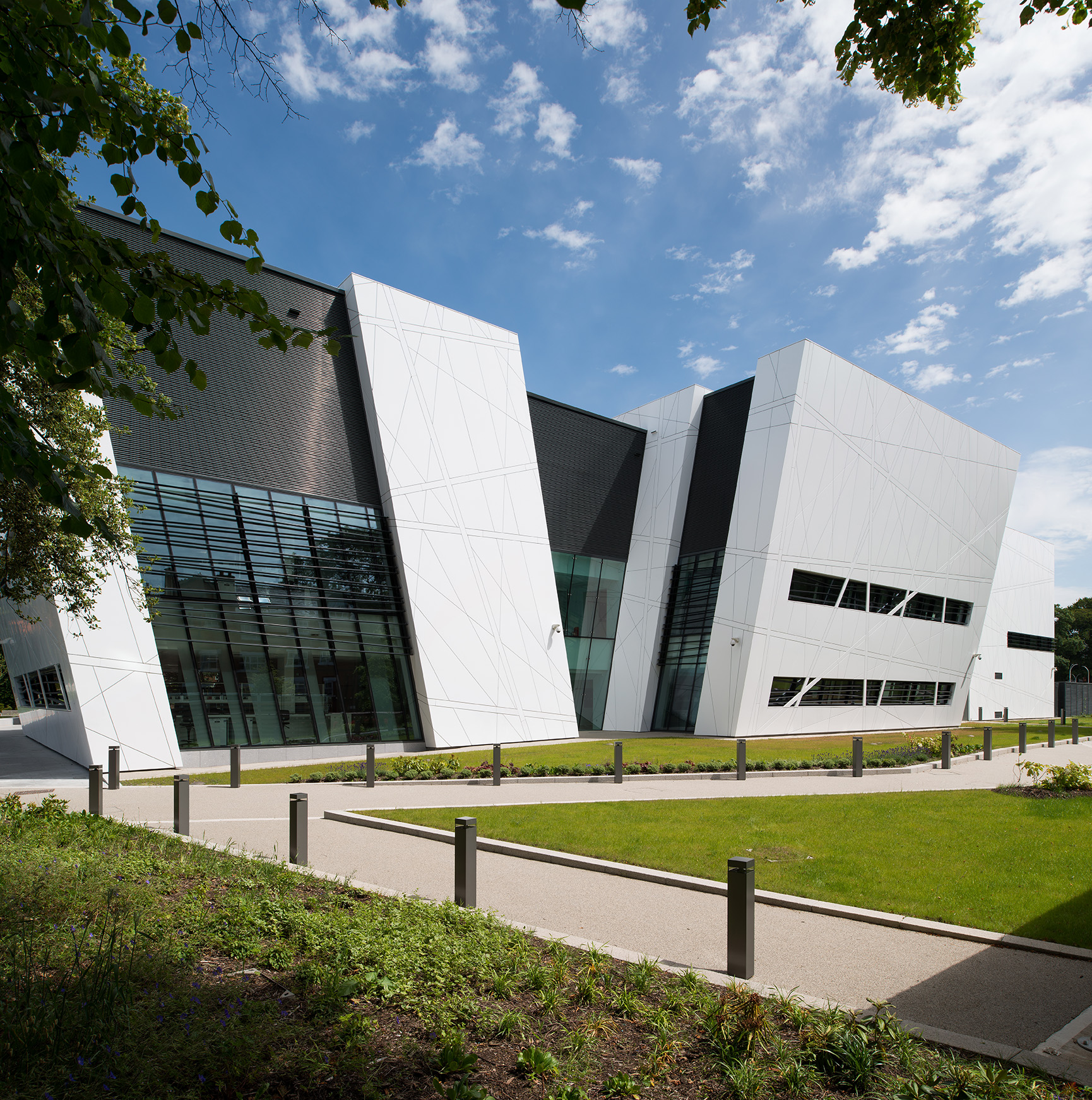Closing date: 04/04/2025
CRUK Black Leaders in Cancer Non-Clinical PhD Scholarship: Investigating KAT6A PROTACs to treat leukaemia and solid tumors
Lead Supervisors: Prof. Georges Lacaud
Co-Supervisors: Prof. Sam Butterworth, Prof. Tim Somervaille
Applications Deadline: Friday 4th April 2025
Interviews: Week commencing 28th April 2025
Non-Clinical Studentship start date: September 2025
Project Keywords: PROTACs, Therapies, AML
Research Opportunity: Non-Clinical Studentship leading to the award of PhD
Project Outline
With this discovery project, we aim to assess the efficacy of KAT6A Proteolysis targeting chimaeras (PROTACs) for treating acute myeloid leukaemia (AML). AMLs are severe, often fatal, blood cancers with limited treatment options. Novel, efficacious, targeted therapies are needed. KAT6A is a genetic vulnerability in AML, particularly in high-risk subtypes of MLL rearranged (MLLr) AML. We propose to target KAT6A’s catalytic and scaffolding functions using PROTACs. PROTACs are small molecules capable of degrading the target protein, offering novel cutting-edge therapeutic approaches.
The experimental plan includes testing KAT6A PROTACs as potential therapies for AML and other malignancies. PROTACs are designed and synthesised in the Butterworth medicinal chemistry laboratory. Using our broad collection of human and murine AML cell lines, we will define the subtypes of AML, particularly MLLr AML, that respond the most to KAT6A degradation. We will define how KAT6A PROTACs alter AML fitness at the cellular and molecular levels. We will also explore combinations of KAT6A PROTACs with existing cancer drugs and assess their effectiveness in animal models. Finally, we will evaluate KAT6A PROTACs efficiency in other cancers. The evaluation of KAT6A PROTACs will involve well-established models and techniques in the Lacaud group. These include in vitro assays, in vivo mouse models, mass spectrometry, and gene transcription and chromatin studies.
Overall, the project will evaluate KAT6A PROTACs as potential therapeutic candidates for AMLs, and potentially other cancer types, contributing to the development of critically needed new targeted and effective treatments for these malignancies. This project will provide outstanding training in the field of cellular and molecular haematopoiesis, oncology and cutting-edge technologies including PROTACs, multi-omics and mouse modelling.
Applications for this project are now open. Please complete your application on the Windsor Fellowship website.
About Professor Georges Lacaud (project Lead Supervisor)
Professor Lacaud graduated as a biotechnology engineer from the European Biotechnology School of Strasbourg (ESBS) in Strasbourg, France. He obtained his PhD from the University Louis Pasteur of Strasbourg and then did a postdoctoral fellowship at the National Jewish Medical Center in Denver, Colorado, studying early lymphoid cell development. Georges next moved to the Mount Sinai School of Medicine in New York, USA as an assistant professor where he worked on early hematopoietic development. He then joined the CRUK Manchester Institute as a junior group leader. He is now a senior group leader and heads the Stem Cell Biology group.

Key information
Before submitting an application, please ensure you have read the information below about the funding arrangements and eligibility for Non-Clinical Studentships.
We also encourage you to get in contact with the lead supervisor to discuss the project and any particulars.
Further information is available on the Non-Clinical PhD Studentships webpage.
The clinical fellowships are usually tenable for three years, although in certain circumstances they may be four years duration.
The Fellowship covers:
- running expenses,
- an appropriate salary in line with the applicant’s current salary and grade
- full coverage of University PhD fees at the UK/home fee rate.
International Candidates
The University of Manchester aims to support the most outstanding applicants from outside the UK.
We are able to offer a limited number of bursaries to high-performing EU and international candidates, covering PhD fees only. Bursaries do not include financial support for visa/health surcharges.
We assess each EU and international candidate’s suitability for a bursary at the application and interview stages.
This programme is aimed at students from Black heritage backgrounds pursuing a PhD in cancer-related fields. This scheme is open to people who self-identify as being from a Black heritage background, including a mixed background, for example: Black African, Black Caribbean, Black Other, Mixed background (to include Black African, Black Caribbean or other Black backgrounds).
The funding for this studentship covers students with UK Home tuition fee status only. However, the CRUK Manchester Centre are able to offer a number of overseas fee scholarships to candidates deemed appointable at interview. These scholarships cover fees only and do not visa costs. In exceptional circumstances, funding for the international health surcharge (for the student only and not dependents) may be made available.
The standard CRUK Manchester Centre PhD programme and studentship academic eligibility criteria are:
- A first or upper second-class honours degree (or equivalent from a non-UK university) in a relevant subject.
- Appropriate research experience as part of, or outside of, an undergraduate or masters degree course in a relevant subject.
- Appropriate English language skills.
Applications for this programme are now open. Please follow the steps below to complete your application:
Step 1: Contact the MCRC Training team to discuss your suitability for your chosen project.
Step 2: Visit the Windsor Fellowship website for further details and to log your application with them.
Step 3: Please then submit a full application for a BLiC PhD on The University of Manchester application portal.
Key dates
- Applications open: Monday 3rd March 2025
- Application deadline: Friday 4th April 2025
- Interviews: Week commencing 28th April 2025
- Start date: September 2025
Useful Links
Submit your application
Interested in applying for this opportunity? Go to the Windsor Fellowship website to submit your application.
Clinical Research Training Fellowships
Discover our various opportunities for clinicians looking to undertake a period of PhD training in a cancer-relevant field.
Get in Touch
Contact Dr Yasmin Noori Jenaghard, Postgraduate Programme Manager.
Researcher Stories
Read first-hand experiences of from cancer scientists from across Manchester.
Why Manchester?
Find out why postgraduate students choose to study in Manchester.
A Day in the Life of a Clinical PhD Student
Watch our short video to see what it's like to be a Clinical Research Training Fellow in Manchester.





